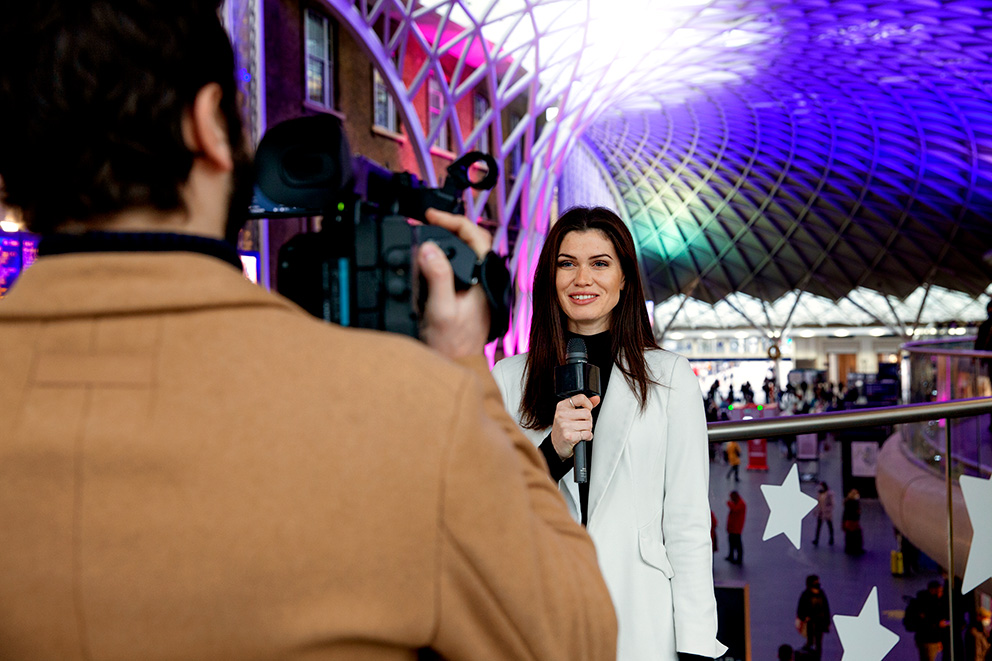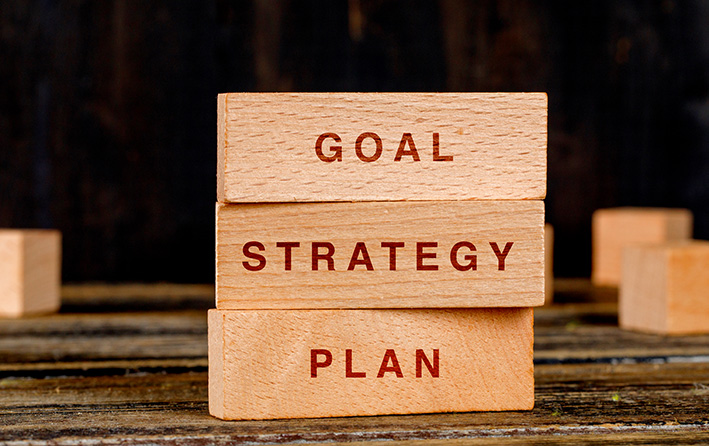In the digital age, consumers are bombarded with messages. Traditional marketing tactics are becoming less effective, with banner blindness and ad fatigue hindering brand recall. To truly connect with their audience, businesses need to create deeper engagements, fostering emotional connections that translate into brand loyalty and advocacy. Enter experiential marketing – a powerful strategy that transcends mere advertising, crafting immersive experiences that resonate with consumers on a personal level.
Thank you for reading this post, don't forget to subscribe!Thank you for reading this post, don't forget to subscribe!The Rise of Experiential Marketing:
The shift towards experiential marketing reflects the evolving consumer landscape. Today’s audience seeks more than just products; they crave experiences. They want to be entertained, engaged, and emotionally invested in the brands they choose. Experiential marketing addresses this desire by creating interactive moments that allow consumers to connect with brands in a meaningful way.

What is Experiential Marketing?
Experiential marketing goes beyond traditional advertising. It’s about creating sensory-rich, interactive experiences that immerse consumers in the brand story. These experiences can take many forms:
- Live Events: From product launches and pop-up shops to music festivals and sporting events sponsorships, live events offer a platform for dynamic brand engagement. Think interactive product demonstrations, engaging workshops, or experiential retail environments that allow consumers to test and interact with products in a unique setting.
- Interactive Installations: Imagine stepping into a life-sized version of your favorite candy bar wrapper, or exploring a virtual reality world that showcases the latest travel destination. Interactive installations push the boundaries of brand engagement, leaving a lasting impression on consumers.
- Sensory Experiences: Touch, taste, smell, sight, and sound – all these senses can be incorporated into experiential marketing campaigns. A chocolate brand could host a tasting event with unique flavor combinations, while a fragrance company could create a pop-up shop with interactive scent stations.
- Social Media Integration: Today’s consumers crave shareable moments. Experiential marketing campaigns can leverage social media by incorporating photo booths, interactive hashtags, or gamified experiences that encourage participants to share their experiences online.
- Cause Marketing: Consumers are increasingly drawn to brands that align with their values. Experiential marketing can be used to support a cause, allowing consumers to participate in a meaningful activity while connecting with the brand story.

The Power of Experiential Marketing: Why Brands Should Care
Experiential marketing offers a multitude of benefits for brands, making it a valuable addition to any marketing strategy. Here’s why you should consider incorporating it into your mix:
- Cut Through the Clutter: In a world saturated with marketing messages, experiential marketing cuts through the noise. By creating unique and engaging experiences, you grab consumer attention and leave a lasting impression.
- Enhanced Brand Awareness: Experiential marketing allows you to showcase your brand in a memorable way. Positive experiences create a buzz and generate word-of-mouth marketing, boosting brand awareness and recall.
- Deeper Customer Engagement: Experiential marketing fosters deeper customer engagement by allowing consumers to interact with your brand on a personal level. This builds trust and loyalty, turning fleeting interactions into lasting relationships.
- Emotional Connection: Experiential marketing has the power to evoke emotions in consumers. Positive emotions lead to stronger brand associations, making consumers more likely to choose your brand over the competition.
- Data Collection and Insights: Experiential marketing campaigns can be a treasure trove of data. By tracking engagement metrics and social media interactions, you gain valuable insights into consumer behavior and preferences, allowing you to refine your marketing strategies.
- Increased Sales: Ultimately, the goal of any marketing effort is to drive sales. Engaging experiences can influence purchase decisions, as consumers who have positive interactions with a brand are more likely to become loyal customers.
Crafting a Winning Experiential Marketing Campaign:
The success of an experiential marketing campaign hinges on careful planning and strategic execution. Here’s a roadmap to guide you:
- Define Your Goals: What do you want to achieve with your campaign? Is it about increasing brand awareness, boosting product sales, or generating user-generated content? Clarity on your goals will guide the development of your campaign.
- Know Your Audience: Who are you trying to reach with your experience? Understanding your target audience’s demographics, interests, and motivations is crucial. Tailor your experience to resonate with their desires and aspirations.
- Develop a Compelling Brand Story: Every successful brand has a story to tell. Use experiential marketing to communicate your brand story in an engaging and interactive way. What makes your brand unique? How do your products or services improve people’s lives?
- Focus on Emotion: Evoke positive emotions in your audience. Consider the emotions you want to evoke (excitement, joy, wonder) and design your experience around them.
- Create a Seamless Omnichannel Experience:
Integrate your experiential marketing campaign with your broader marketing strategy to create a cohesive omnichannel experience. Promote your event through social media channels, email marketing, and influencer partnerships. Utilize a dedicated landing page with clear information, registration options, and social media sharing buttons. Consider offering pre-event teasers or post-event content to maintain audience engagement.

Choosing the Right Platform:
The ideal platform for your experiential marketing campaign depends on your goals and target audience. Consider these factors:
- Live Events: Ideal for generating excitement and buzz, live events can be expensive and require significant logistical planning.
- Pop-Up Shops: Offer a temporary, immersive brand experience that can be easily adapted to different locations.
- Interactive Installations: Can be highly creative and visually striking, but might require a significant budget and technical expertise.
- Virtual Reality (VR) and Augmented Reality (AR): These cutting-edge technologies offer innovative ways to create immersive experiences, but accessibility and cost considerations should be factored in.
- Social Media Integration: A cost-effective way to amplify your campaign’s reach and encourage user-generated content.
Measuring the Success of Your Experiential Marketing Campaign:
Measuring the success of your experiential marketing campaign allows you to gauge its effectiveness and identify areas for improvement. Here are some key metrics to consider:
- Brand Awareness: Track metrics like event attendance, social media mentions, and website traffic to assess how effectively your campaign increased brand awareness.
- Customer Engagement: Monitor metrics like time spent at the event, participation in interactive elements, and social media engagement to understand how deeply your audience interacted with the experience.
- Social Media Buzz: Analyze the sentiment and reach of social media conversations surrounding the campaign to gauge its online impact.
- Lead Generation: Track the number of leads generated through the campaign, such as email sign-ups or event registrations.
- Sales Impact: Evaluate the impact on sales, either through direct purchases at the event or a measurable increase in online sales post-campaign.
Case Studies: Experiential Marketing in Action:
Let’s delve into some real-world examples of experiential marketing campaigns that have successfully captured consumer attention:
GoPro’s “Million Dollar Challenge”: GoPro, the action camera brand, challenged users to submit videos showcasing their adventures captured with a GoPro camera. This user-generated content (UGC) campaign generated immense brand awareness, attracting over 50,000 video submissions and garnering billions of views worldwide.
Airbnb’s “Night at the Museum”: Airbnb partnered with museums around the world to offer unique overnight stays in iconic locations. This experiential campaign tapped into consumers’ desire for unique travel experiences, generating significant media coverage and increased brand loyalty.
Red Bull Stratos: This audacious campaign saw Felix Baumgartner jump from a balloon at the edge of space, breaking the sound barrier in the process. This live-streamed event generated global buzz for Red Bull, showcasing its association with extreme sports and pushing the boundaries of human achievement.
Dove “Real Beauty Project“: This campaign challenged traditional beauty standards by showcasing real women with diverse body types. Dove created pop-up shops with body scanners that distorted people’s reflections, sparking conversations about self-perception and positive body image.
The Future of Experiential Marketing:
Experiential marketing is a constantly evolving field, with new technologies and trends emerging all the time. Here’s a glimpse into what the future holds:
- Personalization: Experiential marketing campaigns will become increasingly personalized, leveraging data and analytics to create bespoke experiences for individual consumers.
- The Rise of AR/VR: Augmented reality and virtual reality technologies will play a bigger role in creating immersive and interactive brand experiences.
- Focus on Sustainability: Consumers are increasingly conscious of environmental impact. Experiential marketing campaigns will prioritize sustainability, using eco-friendly materials and promoting responsible practices.
- The Rise of Experiential Retail: Physical retail spaces will transform into experiential hubs, offering interactive experiences and entertainment alongside shopping opportunities.

Partnering with Zimex Apex for Your Experiential Marketing Needs:
At Zimex Apex, we understand the power of experiential marketing. Our team of creative strategists, event planners, and digital marketing experts can help you develop and execute impactful experiential marketing campaigns that achieve your desired results.
Here’s how we can help:
- Concept Development: We work with you to brainstorm unique and engaging concepts for your experiential marketing campaign, ensuring it aligns with your brand story and target audience.
- Event Planning and Management: From venue sourcing and logistics to talent acquisition and budget management, we handle all aspects of your experiential marketing event, ensuring a smooth and successful execution.
- Digital Marketing Integration: We seamlessly integrate your experiential marketing campaign with your broader digital marketing strategy, amplifying reach and engagement through social media marketing, email marketing, and influencer partnerships.
- Data Analytics and Measurement: We track key metrics to measure the success of your experiential marketing campaign, providing valuable insights that inform future strategies and optimize return on investment (ROI).
- Content Creation: Our team of skilled content creators can develop compelling content that captures the essence of your experiential marketing campaign, from captivating video trailers to engaging social media posts.
- Ongoing Support: We don’t just create your campaign – we support you throughout the process, offering guidance and expertise to ensure its success.
Conclusion:
In today’s competitive landscape, experiential marketing offers a powerful way to connect with your audience and create lasting brand memories. By crafting engaging and immersive experiences, you can break through the noise, build brand loyalty, and drive results.
Ready to Take Your Brand Experience to the Next Level?
At Zimex Apex, we are passionate about helping brands create impactful experiences that resonate with their target audience. We believe that experiential marketing, when done right, can be a game-changer.
Contact us today for a free consultation to discuss your experiential marketing goals and how we can help you achieve them. Let’s work together to craft an unforgettable brand experience that sets you apart from the competition.



